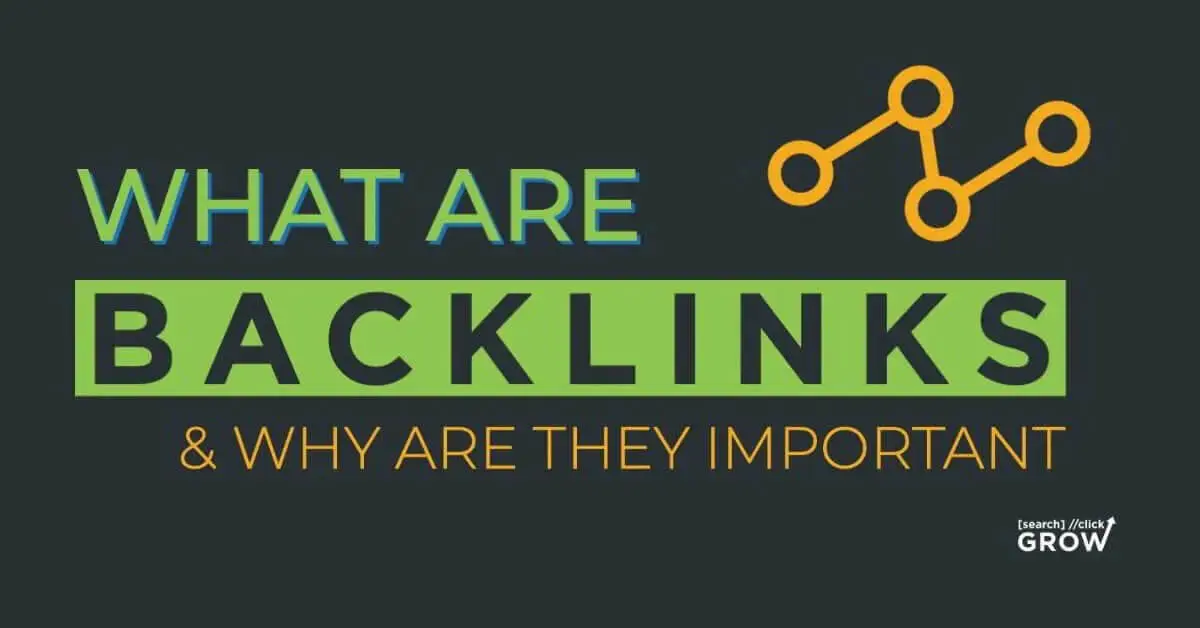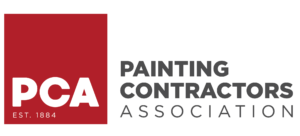
What Are Backlinks and Why Are They Important?
When it comes to businesses, digital marketing is essential. You generate your leads through online content, nurture them, and then convert them into customers or clients. One of the most effective ways to connect with your clients is to have a well-maintained website. You show visitors who you are, what you have, and what you can do.
What drives people to your website? How does Google know that your site is worth ranking on the first page? What good is a website if nobody can find it?
This is where backlinks come in. It’s crucial to know about backlinks because they are what drive people to your website — and what Google uses to rank your site. When you understand what they are, you see their importance. When you know how important they are, you know what to do and what not to do when it comes to acquiring them.
This blog will discuss backlinks and how they can contribute to your business’ success.
What Is a Backlink?
A backlink is a link that points from one website to another. If someone links to your website, then you have a backlink from that site. Backlinks are also called “inbound links” or “incoming links.”
A high number of backlinks is a signal to Google that your site is popular and trustworthy. Having many backlinks informs Google that your website is relevant and should be ranked higher in the SERPs (search engine results pages).
You can find backlinks from websites in two ways: a manual Google search or a backlink checker tool.
Are Backlinks Important for SEO?
Search engine optimization (SEO) is the practice of improving your website to rank higher in Google’s search results. The goal of SEO is to increase your visibility in Google’s organic search results.
There are two types of SEO: on-page SEO and off-page SEO.
- On-page SEO refers to the content and structure of your website. This includes optimizing your title tags, meta descriptions, header tags, and images.
- Off-page SEO refers to the factors outside of your website, such as links from other websites.
So, how are backlinks important to SEO?
Backlinks are one of the most important off-page SEO factors. Google looks at the number of backlinks and the quality of those links. These determine the ranking of your website. A website with many high-quality backlinks will rank higher in the search results than a website with fewer backlinks.
When you have the best SEO practices, you’re not only optimizing your website for Google, but you’re also optimizing it for people. The goal of SEO is to improve the user experience of your website.
When you have a well-optimized website, people are more likely to stay on your site, which reduces your bounce rate. A low bounce rate signals to Google that your website is relevant and trustworthy.
What Is Backlink Anchor Text?
The anchor text is the clickable text that is used to link one website to another. When a website links to your site, the anchor text is the word or phrase used to link to your site.
Anchor text is important because it tells Google what the website links to. For example, if a website links to your site with the anchor text “SEO tips,” then Google knows that the website is linking to your site because it provides SEO tips.
If you want to rank for a particular keyword, you should use that keyword as your anchor text. For example, if you want to rank for the keyword “digital marketing,” then you should use the keyword when you’re linking to your site.
Are Backlinks Always Good?
If there are high-ranking websites, then there are bound to be low-quality websites as well. Not all backlinks are created equal. A link from a high-quality website will have a more significant impact on your SEO than a link from a low-quality website.
On one hand, low-quality websites are often created for the sole purpose of link building. That’s because they know that Google uses backlinks as a ranking factor. They create websites intending to sell links to other websites.
These are the backlinks that you should avoid. “Bad” or “spammy” links from low-quality websites will not help your SEO. In fact, they will hurt your SEO. That’s because Google knows about link farms, and it penalizes websites that are linked to them.
High-quality websites are what you want to aim for. These are websites that are popular and have a lot of authority. A link from a high-quality website will improve your SEO because Google sees your website as more reliable.
How Can You Get Backlinks?
The best way to get backlinks is to create high-quality content that other people will want to link to. This could be a blog post, an infographic, or a video. Once you create this content, reach out to other websites and ask them to link to your content. You can also submit your website to directories and link roundups.
When you have high-quality content, you give potential clients what they need to make an informed decision. This will help you not only rank higher in the search results but also build trust with your potential clients. Potential clients will know what high-quality content is, and they will see that you’re an expert in your field.
Other businesses can also make use of your high-quality content. They can link to your content when they’re writing blog posts or creating their own infographics.
These are what are known as “earned” backlinks. These are the most valuable backlinks because they come from websites that are relevant to your industry.
When you’re trying to build backlinks, it’s essential to focus on quality over quantity. It’s better to have a few high-quality backlinks than many low-quality backlinks.
Steady building of links over time will result in better SEO for your website. After all, if your content genuinely helps people, other websites will want to link to it.
How Should You NOT Get Backlinks?
We’ve gone over what backlinks are and how to get them; let’s discuss how NOT to get backlinks. As mentioned earlier, there are “bad” backlinks that you don’t want. It would be best if you also avoided what is known as “reciprocal” or “mutual” linking.
This is when two websites agree to link to each other. Google sees this as a manipulative tactic, which will still hurt your SEO.
What’s the worst that can happen if you get a bad backlink?
- Google can penalize your website, and you’ll lose your ranking in the search results.
- You could also be blacklisted from Google, meaning your website will no longer appear in the search results. This will affect your traffic and your business. Potential clients cannot trust you if you’re not even appearing in the search results!
Keep in mind that building backlinks only works over time, so don’t expect to see results overnight. Any black hat techniques that promise immediate results will only get you penalized in the long run.
It’s crucial to keep an eye on your backlinks and monitor any new links that are pointing to your website. This way, you can quickly get rid of or reject any bad backlinks before they have a chance to hurt your SEO.
How Do You Determine the Backlinks’ Quality?
If not all backlinks are not good, how can you determine which backlinks are high quality and which are low? The quality of a backlink is determined by a few factors, such as:
- The page rank of the linking website
- The relevancy of the linking website
- The anchor text of the link
- The number of backlinks from the linking website
- The quality of the linking website’s content
A backlink from a relevant website with a high page rank is more valuable than a backlink from a low-ranking website. And a backlink with anchor text that includes your keywords also does more magic for your SEO.
What Are the Backlink Do’s and Don’ts?
Yes, it can get overwhelming trying to keep track of what works and what doesn’t for backlinks. It’s understandable, especially when you know how crucial backlinks are for your business. Here’s a quick backlink do’s and don’ts list to help you out:
Do’s
- Research your link prospects.
- Create high-quality content.
- Reach out to webmasters and bloggers.
- Submit your website to directories.
- Send out press releases and product news.
- Link to other websites.
Don’ts
- Use link farms or paid links.
- Spam comments on other websites.
- Stuff your keywords into the anchor text.
- Exchange reciprocal links.
- Approve backlinks that aren’t in-text.
- Link to low-quality content.
Relying on other websites for backlinks can be risky, so it’s vital that you diversify your link-building strategy. This means that you should focus on getting backlinks from a variety of sources.
Submitting your website to directories is one way to get backlinks from high-quality websites. These are websites that are relevant to your industry, and they’re also likely to have a high page rank. When you’re creating content, focus on creating infographics or blog posts that are comprehensive and informative. These are the types of content that other websites will want to link to.
Reaching out to webmasters and bloggers is also a great way to get backlinks. When pitching your content, make sure you’re genuine and transparent. Most people can spot a fake pitch a mile away, so don’t bother trying to trick them.
Building backlinks can be a tedious and time-consuming process. You have to be patient and put in the work if you want to see results. When you focus more on what you produce, the backlinks will follow.
Backlinks may seem like a minor ranking factor, but they can make a big difference in your website’s SEO. As a result, they also make a big difference to your business’ success.
Start Building Backlinks For Your Website
With all this information about backlinks, you have a solid foundation to start building backlinks for your website.
Here are some steps that you can take to get started:
- Audit Your Existing Backlinks: Start by auditing your existing backlinks. Remove any links that are low quality or come from spammy websites.
- Create Great Content: It won’t hurt to audit your content, too. Make sure that what you’re putting out there is high quality and informative. Otherwise, people won’t want to link to it. Make it a goal to produce at least one piece of high-quality content per week.
- Build New Backlinks From High-quality Websites: The more high-quality backlinks you have, the better your website will rank in search engines! Focus on building backlinks from relevant and high-quality websites.
- Monitor Your Backlink Profile Regularly: Make sure to keep an eye on your backlink profile regularly. This way, you can quickly remove any new low-quality backlinks. It will take time, but the sooner you realize the importance of your backlinks, the sooner you’ll see results! With some elbow grease and patience, you can build a strong backlink profile for your website. Your business will thank you for it!
Conclusion
Search Click Grow understands how the different aspects of digital marketing — including backlinks — work together. That’s why we develop powerful solutions that help you see real, sustainable business growth!
We provide marketing services such as SEO and content marketing, funnels and lead generation, and brand identity and design. Our team is an expert in web design and development, too. Search Click Grow is a one-stop shop for all your digital marketing needs!
We can help you by understanding what your customers really need and what you can offer. For backlinks, we’ll help you identify high-quality websites to target and develop a strategy to get them.
Everything starts with a plan, and that’s when we move on to building high-converting websites. We want to help you take your business to the next level. Get in touch with us now!






